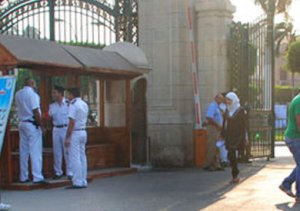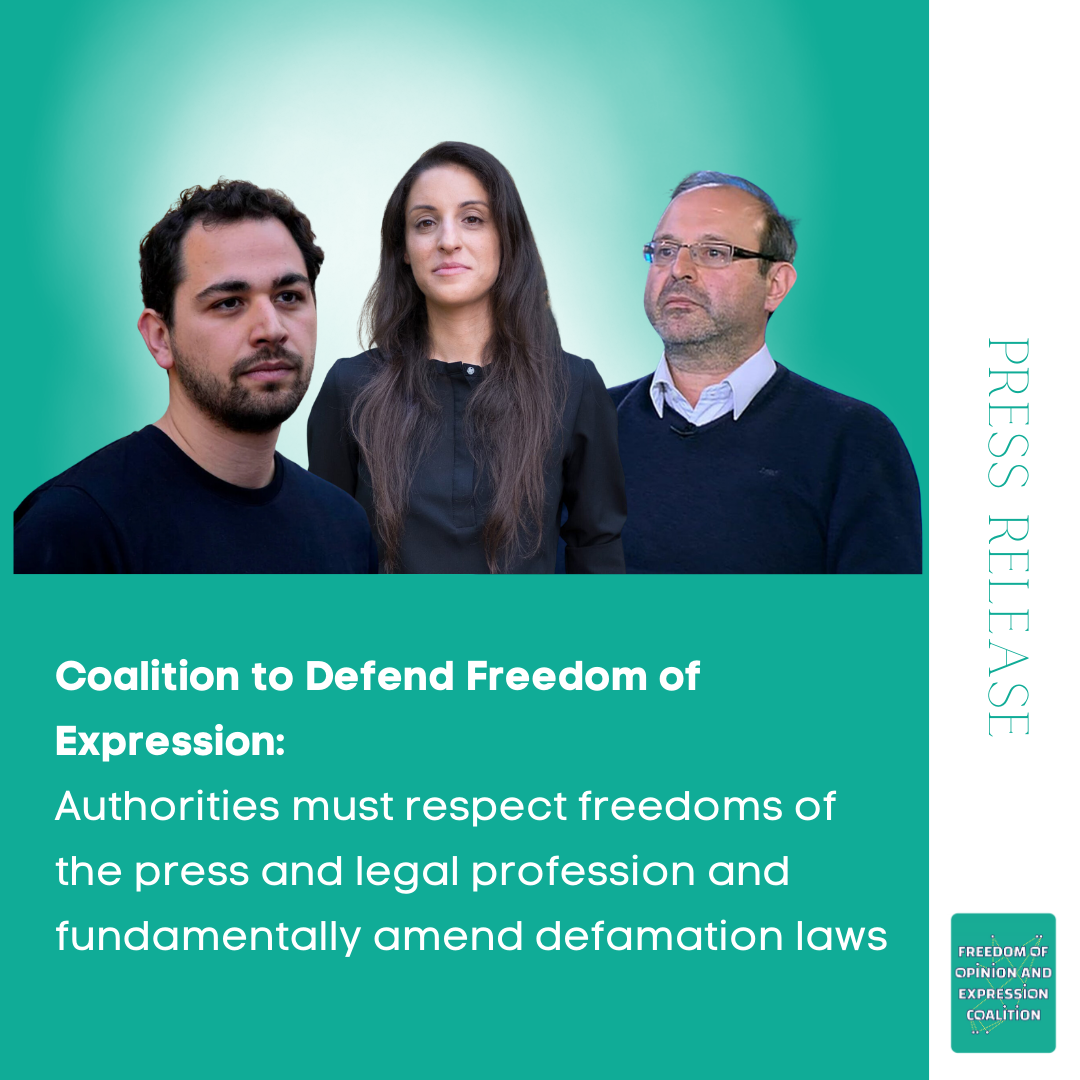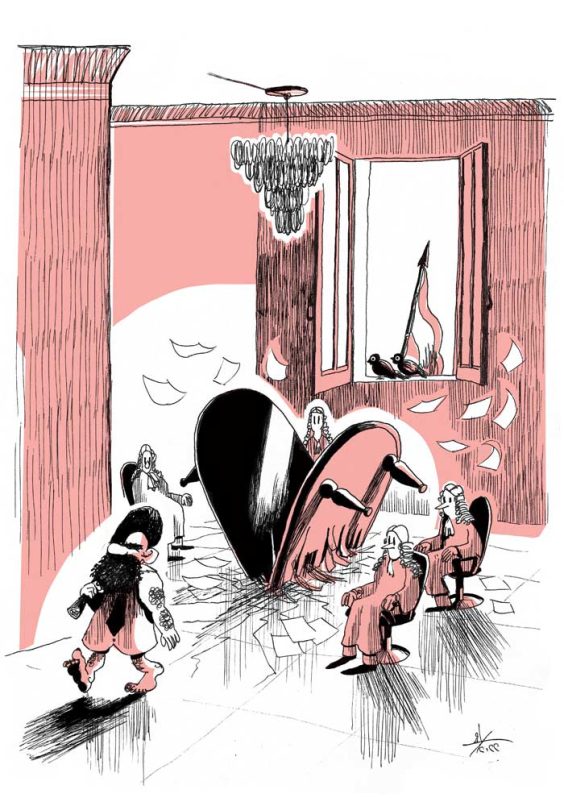Policing Egypt’s Universities: From Campus to Courts

Since the protests of June 30, 2013, and particularly after security forces broke up the sit-ins at Rabaa and el-Nahda in Cairo in August, demonstrations have been organized at various Egyptian universities. These have led to clashes with security forces, specifically at al-Azhar University[1] and at the Engineering Faculty of Cairo University.[2]
Consequently, many people have called for restoring campus police forces to maintain order. The president of Cairo University dismissed the proposal on the grounds that the university's existing security system could maintain order.[3] Certain lawyers then went to court to demand that campus police be restored. Over the past few months, Egyptian courts have issued rulings dismissing that demand, but the Cairo Court for Urgent Matters took an opposing view on February 24, 2014 when it ruled that the campus police should return to universities.
Campus Police: Political Role over the Decades
Under previous governments, campus police have been used for political rather than security purposes. During the time of President Gamal Abdel Nasser, they were used to deal with student members of the Muslim Brotherhood. President Sadat decided to abolish campus police forces in 1971, and instead, sought the help of the Muslim Brotherhood to neutralize leftist and Nasserist students.
Following the student uprising in 1977 and subsequent demonstrations protesting the Camp David Accords, the state started to regain control over campuses by issuing new rules for student activities.[4] One of the first decisions taken by President Mubarak when he took office was to restore the campus security force and place it under the authority of the Interior Ministry. In 1981, the prime minister's office issued a decree to this effect.[5]
During Mubarak's reign, the campus security force played a major role in restricting student activities, intervening in students' union elections and appointing faculty members. It also played a role in detaining dissidents, which led to the launch of the March 9 Movement for University Independence in 2008,[6] and led to lawsuits being filed in administrative courts that were aimed at withdrawing the security force to outside campus walls.
Council of State Rulings: Contradictory Interpretations Between 2010 and 2014
On October 23, 2010, a ruling made by the Supreme Administrative Court was the main reason why the Interior Ministry's campus security force was forced to leave Egyptian university campuses. The court ruled that “the permanent presence of Interior Ministry police forces inside the campuses of Cairo University and its faculties and institutes is a violation of the university’s independence guaranteed by the `Constitution”. In its ruling, the court repealed the ministerial decree of 1981.
The court based its ruling on the Egyptian Constitution -which stipulates that universities are independent- as well as on Egyptian laws regulating universities, and on certain international declarations relevant to the subject. It cited the 1990 Kampala Declaration on Intellectual Freedom and Social Responsibility, which states that “the State shall not deploy any military, paramilitary, security, intelligence, or any like forces within the premises and grounds of institutions of education”, except under certain conditions and subject to certain restrictions. The government refused to implement this ruling. The latter, along with other rulings by the Council of State, was one factor that paved the way for the uprising of January 25, 2011.
In March 2011, the minister of interior decided to abolish campus police units at all Egyptian universities – a step seen as an achievement of the revolution.[7] As mentioned above, several lawyers petitioned the administrative courts to issue a ruling that would oblige the government to restore the force. On December 31, 2013, the Administrative court rejected a petition to this effect, submitted by lawyer Murtada Mansour.[8] The court reaffirmed its position in a ruling on January 5, 2014,[9] after declaring that the Interior Ministry never issued a decree preventing police forces from entering university campuses.
Although the petition was dismissed, the court did recognize the right of police to enter campus grounds in response to, or to prevent the occurrence of a felony – such as the damaging of public property. The police, it was argued, do not need an entry permit from the university president or the relevant judge or the public prosecutor because universities are public rather than private spaces.
The right of police to deal with criminal acts is not in dispute. But it is striking that the court indicated that laws specific to universities do not bar police from going on campuses to make arrests, and that a university’s independence in no way implies independence from the state. This independence, the court added, “should be viewed as functional” and as one designed to prevent any other administrative body from interfering in the affairs of universities.
The court also asserted that the ruling by the Higher Administrative Court in 2010 applied only to Cairo University, although it was in fact implemented by all Egyptian universities. This provided a legal loophole for those who wanted to bring back campus police at least at universities other than Cairo University. The detailed explanation of the ruling also gave the impression that the court was trying to step back from the concept of independence as it had previously interpreted it in 2010.[10]
Ruling Restoring Campus Police: Is the Court of Urgent Matters Expanding its Jurisdiction?
Because it was proving hard to obtain a ruling from the administrative courts in favour of reviving the campus police, certain lawyers resorted to the Cairo Court for Urgent Matters. This was done in an attempt to obtain such a ruling on an expedited basis, and on the grounds that there was widespread violence at universities.
On February 24, 2014, the Court for Urgent Matters ruled that the campus police should return in order to secure universities, and maintain law and order on campuses.[11] This has provoked a major dispute because of the debate over whether the Court for Urgent Matters has the authority to make such rulings.[12]
Under Article 45 of Egypt’s Code of Civil and Commercial Procedure(s), “at the premises of the court of first instance one of the court's judges shall be designated to rule, temporarily and without prejudice to the substance of the case, on urgent matters where time is a critical element”.
The Court for Urgent Matters has jurisdiction when two conditions are met: first, that “the case is urgent and it is feared that the procedures might take too long in the court that has jurisdiction”. Second, that “the request is for a temporary measure and not for a ruling on the substance of the case”.[13] However, in the ruling that was made, these two conditions were not met, and the court's ruling went beyond being merely temporary and precautionary, and dealt with the substance of the case itself.
Additionally, Article 10 of the Council of State law specifies the exclusive prerogatives of the Council of State courts. These include “challenging the refusal or failure of the executive authorities to take a measure that they were obliged to take according to law and regulations”. This implies that the Administrative Court -and not any of the civil courts- has jurisdiction to hear the suit, of whatever level and whatever kind, including the Court for Urgent Matters.
This is not the first time that the Cairo Court for Urgent Matters has ruled on cases that are not within its jurisdiction. On the same day of the campus police ruling, the court issued a ruling dictating that the government designate the Muslim Brotherhood a terrorist group.[14] The government had already done so. The court decision was thus simply a means to provide the legal basis for the government’s decision.[15] Earlier in December 2013, the same court ruled that students must obtain permission from the president of their university before organizing demonstrations.[16] These rulings raise questions about whether the court thinks it has a duty to play a political role under the present circumstances.
This article is an edited translation from Arabic.
References:
[1] For example, see: “Cairo al-Azhar Campus Torched Amid Egypt Protests”, BBC website, dated December 28, 2013.
[2] For example, see: “Cairo University Engineering Faculty Suspends Operations Because of Repeated Clashes Between Security and Students”, el-Shorouk Newspaper, dated December 10, 2013.
[3] See: Gaber Nasser’s, “We Will Not Agree to the Return of the Campus Police”, el-Shorouk website, dated October 4, 2013.
[4] See: “The Campus Police: A Bad History On Its Way Back by Court Order”, Al-Masry Al-Youm Newspaper, dated February 25, 2014.
[5] Idem.
[6] Idem.
[7] Idem.
[8] See: Al-Masry Al-Youm Newspaper, dated January 2, 2014.
[9] See: “Detailed Explanation for Refusing to Restore the Campus Police: Police Have the Right to Enter Campuses Without Permission to Protect Them”, Al-Masry Al-Youm Newspaper, dated January 5, 2014.
[10] Article 54b of the Council of State law states that “If any circuit of the Higher Administrative Court, on examining appeals, discovers that it or any other circuit of the court has issued rulings that contradict each other, or if it wishes to depart from any legal principle decided in previous rulings by the Higher Administrative Court, then the circuit must refer the appeal to a panel set up by the general assembly of that court every judicial year and composed of eleven judges under the chairmanship of the president of the court, or one of his deputies in order of seniority”.
[11] See: El-Watan Newspaper, dated February 25, 2014.
[12] See Mahmoud Kabish’s: “The Ruling in Favour of Bringing Back the Campus Police is Invalid Because the Court Does Not Have Jurisdiction”, Al-Masry Al-Youm Newspaper, dated February 25, 2014.
[13] These are the powers of the Court for Urgent Matters as established by the Court of Cassation. For example, see the ruling issued on November 8, 1961.
[14] See: El-Watan Newspaper, dated February 25, 2014.
[15] See: Dr. Fattouh El-Shazly’s, “Declaring the Muslim Brotherhood A Terrorist Group: The Decision and Its Effects”, The Legal Agenda, dated January 13, 2014.
[16] See: Mohamed Al-Ansari’s, “The Cairo Court for Urgent Matters: Head of University Should Decide on Student Demonstrations”, The Legal Agenda, dated December 30, 2013.



